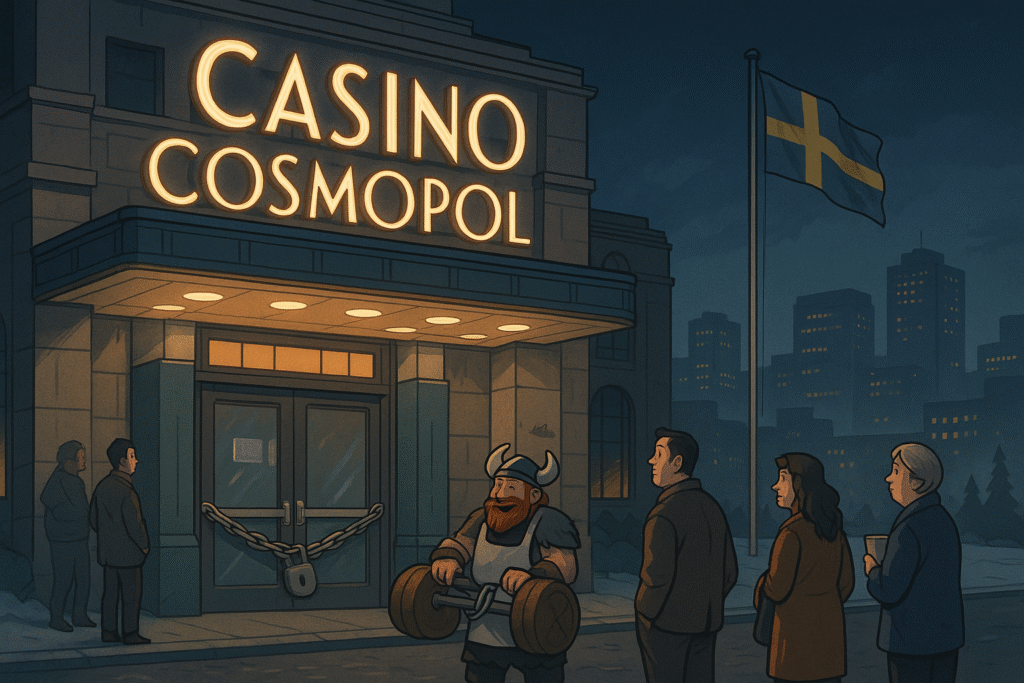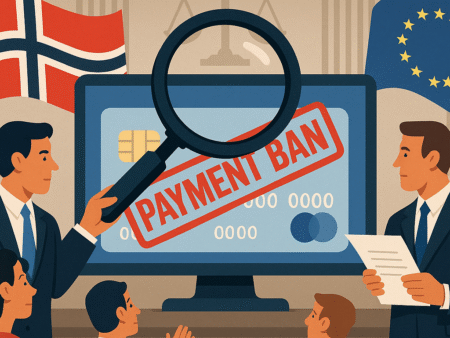
It’s official. The Sweden’s final land casino closed up shop after decades of play. Casino Cosmopol Stockholm is done. Really feels like end of a line for old-school slots and tables in Sweden.Everything’s gone digital now, and the days of buzzing, packed casino halls are fading away dynamic.
Here’s what happened, how Casino Cosmopol got here and what Swedish players and operators might expect in the world of no real-life casinos anymore.
Table of Contents
Short History of Casino Cosmopol
Casino Cosmopol started back in 1999. It was part of Svenska Spel casino, the Sweden’s state casino boss. They ran four locations. Stockholm, Gothenburg, Malmö and Sundsvall. Their big goal? Offer fun and safe casino gig, all legal, so people could play with peace of mind (and bright lights). Rules were tight from the start.
The world changed though. Online casinos boomed. People stopped going in person. Just easier to play on your couch.
Why Did Casino Cosmopol Fold?
A bunch of reasons came together.
- Revenue fell for years especially after 2010. People stopped visiting.
- Online gambling exploded. More options more convenience. Folks could play anytime.
- Consumer habits changed. Everyone started using their phones to play. Younger people didn’t care much for the slot halls or poker tables in Sweden.
- Rules got stricter. Officials doubled down on responsible gambling. Running a big, fancy building just didn’t add up anymore.
- And don’t forget Covid. The pandemic shut everything down temporarily, but for lots of physical venues, that break meant “never coming back.”
The Significance of the Final Closure
When the Stockholm’s casino closed in 2025, it was more than just a business closing. It felt like the end of a whole scene. For a while, Casino Cosmopol meant luxury, wild nights, fancy drinks and yes, plenty of games.
Now, all that’s left is memory. The Sweden gambling world lives online.
How This Hits Swedish Players
1.Missing live vibe.
People who loved the buzz of a crowded casino? Out of luck, at least inside Sweden.
2. Rise of Live Dealer Online Casinos
Live dealer online casinos are everywhere now. Operators push these live-streamed games to mimic the real deal. Not bad but not quite the same.
3. Travel Abroad
Some players fly out. Estonia and Finland see the Swedish gamblers hopping the border for real tables.
Effects on Svenska Spel and Other Operators
For Svenska Spel casino, closing the doors cuts costs. Less overhead for sure. Their focus is all about online play now. Sports betting too plus bigger deals for safe gambling.
Swedish rules for gambling are super strict. Safety wins out over flashy buildings every time.
Lessons from the Casino Cosmopol’s Goodbye
- Stick with what players want. Operators have to keep changing as folks do.
- Go digital first. The Sweden’s gambling is all online now.
- Rules keep things honest. The point is healthier safer gambling world.
Will Sweden Ever Bring Back Land-Based Casinos?
Not looking likely.
- Government says no new licenses coming.
- People just don’t want old-style casinos the way they used to.
- Online and mobile games run the show now.
So Sweden’s last casino closing really is the final curtain.No signs of a comeback, just neat slot in history.
Big Takeaway
When Sweden turned off the lights at Casino Cosmopol, that shut the door on huge chapter. Folks might miss the old social scene but gambling’s future here looks wired and online. With tough Swedish rules and more focus on safe play, a smart, digital-first world is already taking shape.











